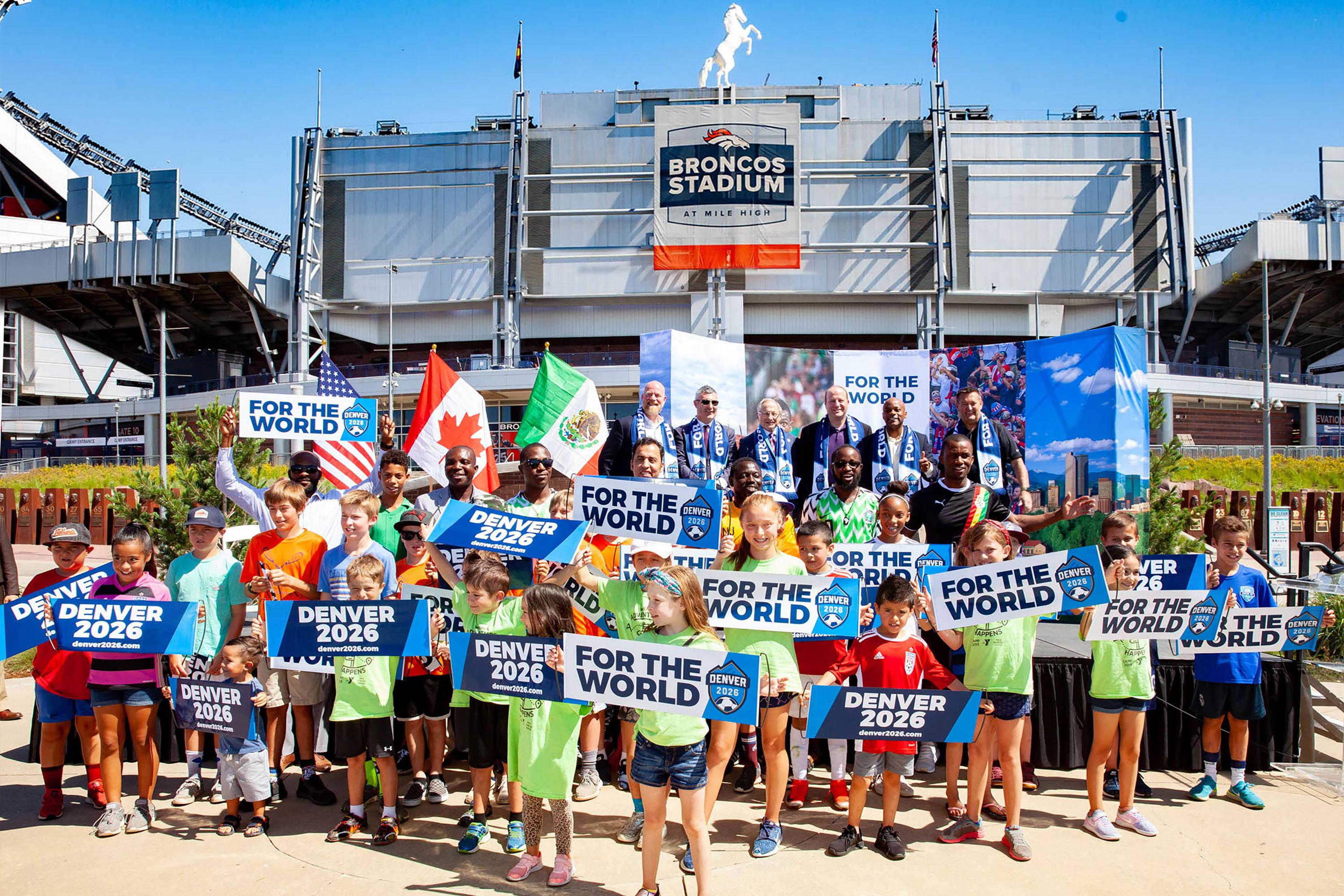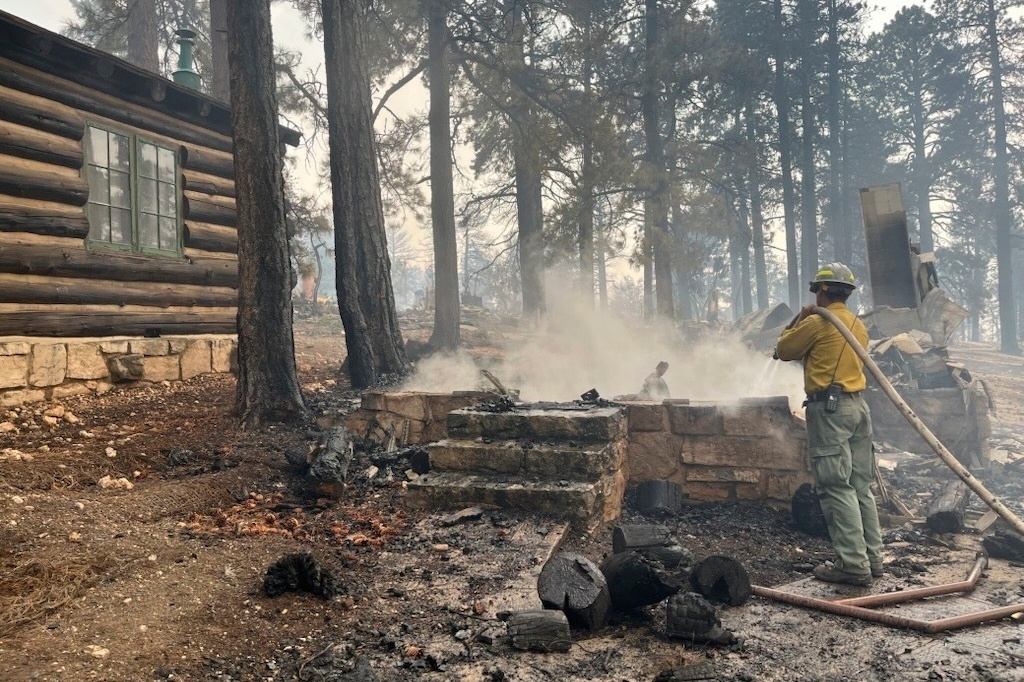
Denver is among the top two dozen U.S. cities vying for one of the 10 host city spots in the U.S. for the men’s World Cup 2026, and today, a group of proponents is working to ensure the Mile High City is selected.
The official bid committee, which is supported by Gov. Jared Polis, Mayor Michael Hancock, the Colorado Soccer Association and other grassroots and local organizations held a press conference to kick off the bid campaign. They released a new website and an official logo representing the efforts. Other U.S. cities vying for a spot, including Kansas City, Missouri, and Cincinnati, have also released websites and official plans. There are 17 U.S. cities competing for 10 spots.
If chosen, Denver would host World Cup matches at the Broncos Stadium at Mile High, which has a seating capacity of more than 76,000. FIFA analyzed North America’s bid and gave Denver’s stadium the highest score in its technical evaluation, and ranked Denver International Airport among airports with the best flight options. The Denver 2026 website boasts Denver’s robust transportation options, walkable downtown, world-class stadium and love of soccer as its main attractions for the games.
“What they really want to see is they want the fan experience to be very top level,” said Matthew Payne, executive director of the Denver Sports Commission. “That’s where we’re excited just because we feel like we’re already a global destination. We’re a city that can host very high-profile events, and we’ve already shown that with our track record.”
Hosting could generate more than $360 million in economic activity for the region, Payne said.
Supporters of Denver’s bid argue that the U.S. women’s soccer team win at the World Cup inspired people all over the world, and that hosting the men’s World Cup in Denver will do the same for Colorado’s nearly 70,000 youth soccer players.
“When you have these big matches that are in communities it really affects that youth player,” Payne said. “They get to see the elite athlete play, and there’s a lot of inspiration there.”
The final North American host cities aren’t expected to be announced until as late as 2021.
“Broncos stadium already hosts capacity crowds every fall. We’ll be ready to host soccer fans from all over the world and show them what’s so remarkable about the Mile High City,” Payne said. “Now it’s just a matter of us being great host to thousands of visitors and fans from all over the world.”









